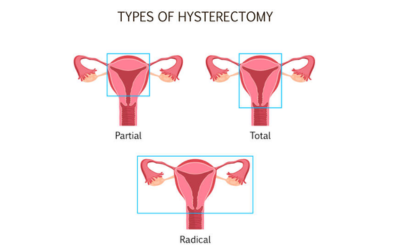
Ovarian Cancer Treatment in Mumbai
A cancer diagnosis can shatter the very fabric of a person’s life—emotionally, physically, and mentally. Ovarian cancer, in particular, often emerges silently and strikes at the core of a woman’s well-being. For patients and their families, it marks the beginning of a difficult but potentially transformative journey—one that demands expert guidance, timely intervention, and immense courage.
Globally, ovarian cancer is the eighth most common cancer among women, with over 313,000 new cases diagnosed each year. In India, it ranks third among gynecologic cancers, with increasing incidence rates particularly in urban areas like Mumbai. Limited awareness and late-stage detection make early diagnosis a challenge, which is why timely and skilled medical intervention is critical.

Dr. Mohan Menon, an American Board Certified Medical Oncologist, says:
“Early intervention can make all the difference. Ovarian cancer often mimics benign conditions, so a detailed evaluation is key. I emphasize awareness and proactive screening, especially in women with a family history or persistent symptoms like bloating or pelvic discomfort.”
Mumbai, with its globally competitive healthcare infrastructure, is now a hub for comprehensive cancer care, making it a strong choice for ovarian cancer treatment. Patients here benefit not only from cutting-edge technology but also from specialists with international experience.
Let’s explore this further…
What is Ovarian Cancer?
Ovarian cancer arises when abnormal cells in the ovaries begin to multiply uncontrollably, forming a tumor. The disease can quickly spread to other parts of the reproductive system and beyond, which makes early diagnosis crucial.
There are several types of ovarian cancer:
Epithelial tumors: Most common, originating in the outer lining of the ovary.
Germ cell tumors: Begin in egg-producing cells, more common in younger women.
Stromal tumors: Start in hormone-producing tissue and are often diagnosed earlier.
Access to timely and accurate ovarian cancer treatment is essential, especially given the cancer’s tendency to go unnoticed until it reaches an advanced stage.
According to Dr. Mohan Menon, a sought-after doctor for ovarian cancer treatment in Mumbai:
“Ovarian cancer often masquerades as general gastrointestinal issues. As a medical oncologist with two decades of experience in both the U.S. and India, I’ve seen firsthand how subtle symptoms can mislead both patients and practitioners. A high index of suspicion and personalized diagnostics are key.”
Symptoms and Early Warning Signs
Because ovarian cancer symptoms often mimic less severe conditions, they are easily overlooked. Here are the common signs:
Persistent bloating: Not occasional gas, but noticeable and ongoing.
Pelvic or abdominal pain: Dull or sharp pains that don’t subside.
Frequent urination: Not due to fluid intake, but pressure from a tumor.
Early satiety: Feeling full quickly while eating.
Unexplained weight changes: Especially loss without a clear reason.
Changes in menstrual cycle: Unusual bleeding patterns or missed periods.
Fatigue and back pain: General malaise that doesn’t improve with rest.
If these symptoms persist for more than two weeks, it’s essential to seek medical evaluation. Awareness and early action remain our best defenses.
Treatment Options Available in Mumbai
Mumbai stands out as a medical destination thanks to its multi-specialty hospitals, experienced professionals, and integrated cancer care models.
Here are the primary ovarian cancer treatment modalities:
Why Choose Us for Ovarian Cancer Treatment in Mumbai?
Here’s what sets the treatment approach apart:
Global Expertise in Local Settings: Dr. Mohan Menon brings 22 years of experience, including 17 in the U.S., with board certifications in Medical Oncology, Internal Medicine, and Hospice & Palliative Care.
Collaborative Care: Works with top gynecologic oncologists in Mumbai to offer holistic treatment from diagnosis through survivorship.
Access to Leading Hospitals: Breach Candy, Sir HN Reliance Foundation, and Lilavati Hospital are equipped with world-class cancer care infrastructure.
Personalized Protocols: Every patient receives a treatment plan tailored to her genetic profile, age, comorbidities, and personal preferences.
Patient Recovery and Support
A strong recovery plan is just as vital as the treatment itself. Mumbai hospitals offer structured post-treatment care, emphasizing emotional, physical, and social well-being.
Key Recovery Pillars:
Follow-Up Monitoring: Regular scans, blood tests, and doctor visits to monitor recurrence or side effects.
Nutrition Counseling: Specialized oncology dietitians help build strength and immunity.
Rehabilitation Services: Physical therapy and yoga programs improve strength, flexibility, and mental health.
Psychological Support: Access to psycho-oncology services and peer support groups.
Fertility Counseling: For younger patients, fertility preservation discussions begin early in the treatment planning stage.
Frequently Asked Questions
Can ovarian cancer be cured?
How long does treatment last?
It varies. Surgery may be a single event, while chemotherapy typically spans 3–6 months. Follow-ups may continue for years to monitor recurrence.
Is fertility possible after treatment?
When should I see a doctor?
What lifestyle changes help post-treatment?
Adopting a plant-rich, anti-inflammatory diet
- Engaging in moderate exercise
- Managing stress through yoga or mindfulness
- Avoiding tobacco and excessive alcohol
- Maintaining regular follow-up schedules
Disclaimer: This page is for informational purposes and not for promotional use.









